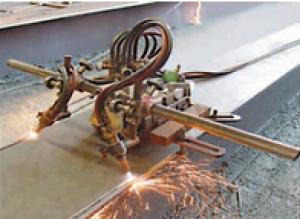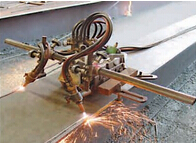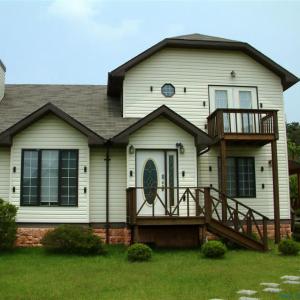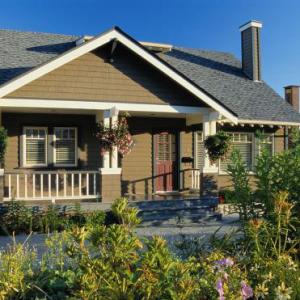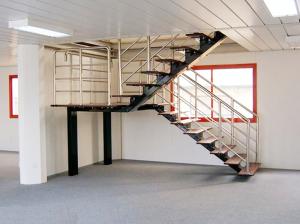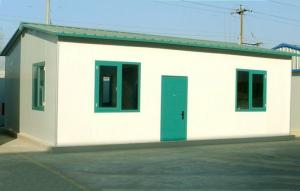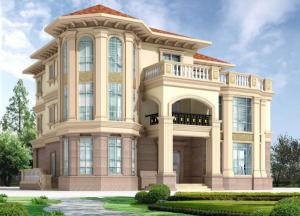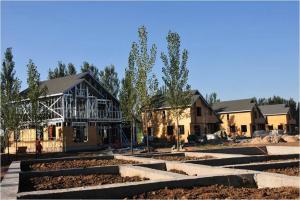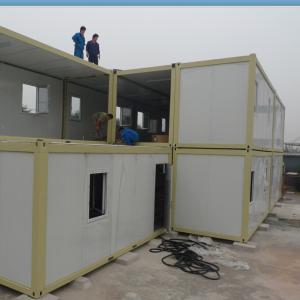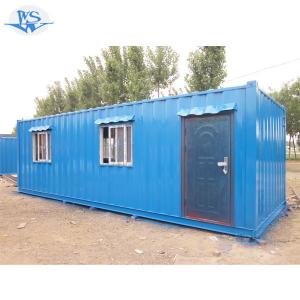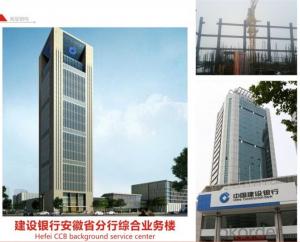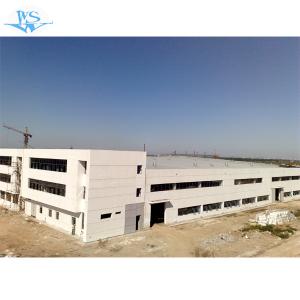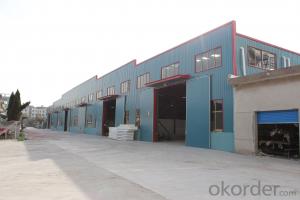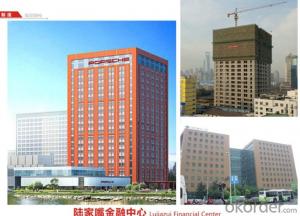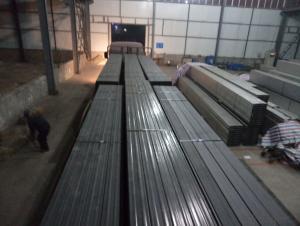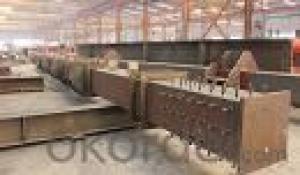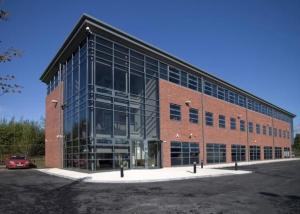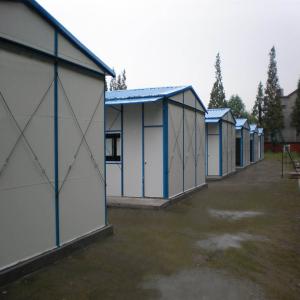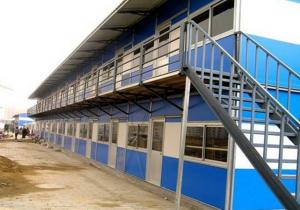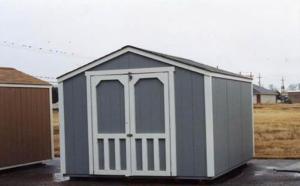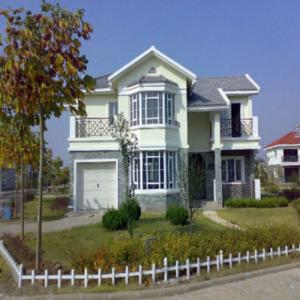structural steel
- Loading Port:
- Tianjin
- Payment Terms:
- TT OR LC
- Min Order Qty:
- -
- Supply Capability:
- 3500 kg/month
OKorder Service Pledge
OKorder Financial Service
You Might Also Like
Research & development, design, production, construction, installation and service support of lightweight steel structure building engineer dominated by industrial manufacturing, storage, supermarket and multiplayer steel structure building, etc is the most mature steel structure system maximumly undertaken by DUOWEI Steel Structure.
Many lightweight steel system industry specifications and codes such as Codes for Design of Steel Structures, Technical Specification for High Strength Bolt Connections of Steel Structures and Technical Specification for Manufacturing of Steel Structures are prepared or participated to be prepared, and many technical patents such as “steel structure workshop assembly patent certificate” are obtained.
Workshop steel structure projects undertaken by DUOWEI Steel Structure involve many fields such as aerospace, power plant, mechanical industry, automobile industry, electrical industry, pharmaceutical industry, chemical industry, communication industry, building materials industry, optical instrument and business logistics.
Representative engineering includes China Aerospace gasification equipment industry base heavy-duty workshop with 300t travelling crane, and Changan Auto pure electric vehicle manufacturing plant with building area over 200,000 square meters, China Coal Zhangjiakou Coal Mine Machinery Industrial Park with building area near 300,000 square meters, Zhengzhou Tongyu Heavy Industrial project with enclosure area over 200,000 square meters and Erdos Yiding coal chemical industry project with height over 90 meters and using 1200t crawler crane, 2600t hydraulic gantry crane and 690t composite cooler integral hoisting.
This building system has large plane space, flexible division and good economical efficiency. Requirements for overall performances of roof system and wall system such as wind resistance performance, rainproof performance, sealing performance and condensate water resistance, etc are strict. It is especially applicable to constructing industrial buildings such as industrial workshop and logistics & warehouse, etc and commercial buildings such as superstore, store and cold storage, etc. Moreover, it is also China new generation carrier rocket industrialization base.
- Q: Can container houses be designed to have a large outdoor living area?
- Yes, container houses can be designed to have a large outdoor living area. While container houses are typically smaller in size compared to traditional houses, they can still provide ample outdoor space if designed and planned properly. One common approach is to combine multiple containers or extend the living area by adding additional structures such as decks, patios, or pergolas. By strategically stacking or arranging containers, architects and designers can create open and spacious outdoor areas. This can be achieved by removing one or more sides of the container to create an open space that seamlessly connects the indoor and outdoor areas. Additionally, containers can be modified to include sliding or folding doors that can be completely opened up to expand the living space outdoors. Furthermore, container houses can incorporate various outdoor features to enhance the overall living experience. These may include landscaping elements such as gardens, lawn spaces, or even swimming pools. By carefully considering the layout, orientation, and placement of the containers, it is possible to maximize the available outdoor space and create a large and comfortable outdoor living area. Ultimately, the design possibilities for container houses are limited only by creativity and budget. With thoughtful planning and design, container houses can indeed offer a large outdoor living area, providing homeowners with the opportunity to enjoy the outdoors while living in a unique and sustainable dwelling.
- Q: Can container houses be insulated for soundproofing?
- Yes, container houses can be insulated for soundproofing. While shipping containers are made of steel, which can conduct sound easily, there are various methods to insulate them and reduce noise transmission. One common approach is to use insulation materials such as mineral wool or foam to fill the walls, ceilings, and floors of the container. This helps absorb and dampen sound vibrations, preventing them from traveling through the walls. Additionally, adding acoustic panels or soundproof curtains to the interior can further enhance sound insulation. It's important to work with professionals who have experience in soundproofing to ensure an effective and efficient insulation solution for container houses.
- Q: Are container houses suitable for urban infill projects?
- Indeed, container houses prove to be a fitting choice for urban infill projects. In recent years, they have gained popularity as a sustainable and cost-effective alternative to traditional construction methods. Their advantages make them well-suited for such endeavors. To begin with, container houses boast high adaptability and design flexibility. They can be easily customized and modified to fit snugly into compact urban areas, making them ideal for infill projects that often face space limitations. Containers can be stacked, joined, or arranged in various configurations to optimize available space and create unique architectural designs. Moreover, container houses are environmentally friendly. By repurposing shipping containers, these houses contribute to waste reduction and material recycling. Additionally, container houses can incorporate sustainable features such as energy-efficient insulation, solar panels, rainwater harvesting systems, and green roofs, which further enhance their eco-friendly nature. Furthermore, container houses tend to be more budget-friendly than traditional houses, making them a viable option for urban infill projects that seek to provide affordable housing solutions. The use of containers as building units significantly reduces construction costs, making it feasible to create affordable housing units in urban areas with high land prices. Additionally, container houses can be constructed relatively quickly, enabling faster project completion compared to conventional construction methods. This can be especially advantageous for urban infill projects, where time is often of the essence due to the urgency of addressing housing shortages or revitalizing underutilized spaces. Nevertheless, it is crucial to consider potential challenges when implementing container houses in urban infill projects. Some municipalities may have zoning restrictions or regulations that must be navigated, and additional factors such as utility connections and access to services should be thoroughly evaluated. In conclusion, container houses offer a plethora of benefits that render them suitable for urban infill projects. They are adaptable, sustainable, affordable, and can be constructed relatively quickly. With proper planning and careful consideration of local regulations, container houses can prove to be a valuable solution for addressing housing needs and revitalizing urban spaces.
- Q: Can container houses be designed to have a contemporary exterior appearance?
- Yes, container houses can definitely be designed to have a contemporary exterior appearance. With the right architectural design, materials, and finishes, container houses can be transformed into modern and stylish homes. The flexibility of container structures allows for customization, making it possible to incorporate contemporary elements such as large windows, sleek facades, and unique exterior cladding options. Additionally, the use of creative landscaping and exterior features can further enhance the contemporary look of container houses.
- Q: Can container houses be designed to have a fireplace?
- Yes, container houses can be designed to have a fireplace. Although containers are made of steel, which is not a traditional material used to construct fireplaces, there are ways to incorporate a fireplace into a container house design. One common approach is to use a wood-burning stove or a closed combustion fireplace, which can be installed in a specially designed area that allows for proper ventilation and safety precautions. Additionally, the container can be modified to include a chimney or venting system to ensure the smoke is safely directed outside. It is crucial to consult with professionals experienced in container home construction and fireplace installation to ensure that all necessary safety measures are met and that the design complies with local building codes and regulations.
- Q: Are container houses resistant to hurricanes or strong winds?
- Container houses can be resistant to hurricanes or strong winds if they are properly designed and constructed. The structural integrity of a container house largely depends on the modifications made to the shipping containers. Reinforcements such as additional steel beams, concrete foundations, and hurricane straps can be added to enhance their resistance to extreme weather conditions. Container houses that are built to withstand hurricanes and strong winds are usually designed to meet specific building codes and regulations. These codes and regulations take into account factors such as wind speed, uplift forces, and the overall stability of the structure. By following these guidelines, container houses can be made resilient to high winds and storms. It is important to note that the location of the container house also plays a significant role in its resistance to hurricanes. If the house is situated in a hurricane-prone area, additional precautions may need to be taken to ensure its durability. This could include securing the container house to a solid foundation, using impact-resistant windows, and implementing proper drainage systems to prevent flooding. Overall, container houses can be made resistant to hurricanes and strong winds, but it is crucial to work with experienced professionals who understand the specific requirements for building in high-wind areas. By incorporating the necessary modifications and adhering to building codes, container houses can provide a safe and durable living space even in areas prone to severe weather conditions.
- Q: Are container houses suitable for emergency shelters?
- Indeed, emergency shelters can benefit greatly from the suitability of container houses. Constructed using shipping containers, these houses possess qualities of durability, resistance to adverse weather conditions, and ease of transportation. Assembling them swiftly, container houses furnish a safe and secure living environment for individuals affected by natural disasters or conflicts. Moreover, customization options allow for the inclusion of basic necessities such as sleeping areas, sanitation facilities, and cooking spaces. In terms of cost-effectiveness, container houses prove to be a more viable alternative compared to traditional construction methods, particularly for emergency response organizations with limited resources. Notably, container houses can be reused and repurposed for future emergencies, demonstrating their environmentally conscious nature. All in all, container houses offer a practical and efficient solution for emergency shelters, providing temporary housing that is both functional and sustainable.
- Q: Are container houses suitable for daycare or childcare centers?
- Container houses can be suitable for daycare or childcare centers, as they can provide a cost-effective and flexible solution. These structures are durable, easily customizable, and can be designed to meet the specific needs of a daycare facility. However, it is important to ensure that necessary safety regulations and requirements are met before using container houses for such purposes.
- Q: Can container houses be rented or leased?
- Yes, container houses can be rented or leased. Many people choose to rent or lease container houses as an affordable and flexible housing option.
- Q: What is the structure of the activity board room and the material used?
- Caigang sandwich panel activities board room: the outer layer is a high-strength color steel plate.
Send your message to us
structural steel
- Loading Port:
- Tianjin
- Payment Terms:
- TT OR LC
- Min Order Qty:
- -
- Supply Capability:
- 3500 kg/month
OKorder Service Pledge
OKorder Financial Service
Similar products
Hot products
Hot Searches
Related keywords
